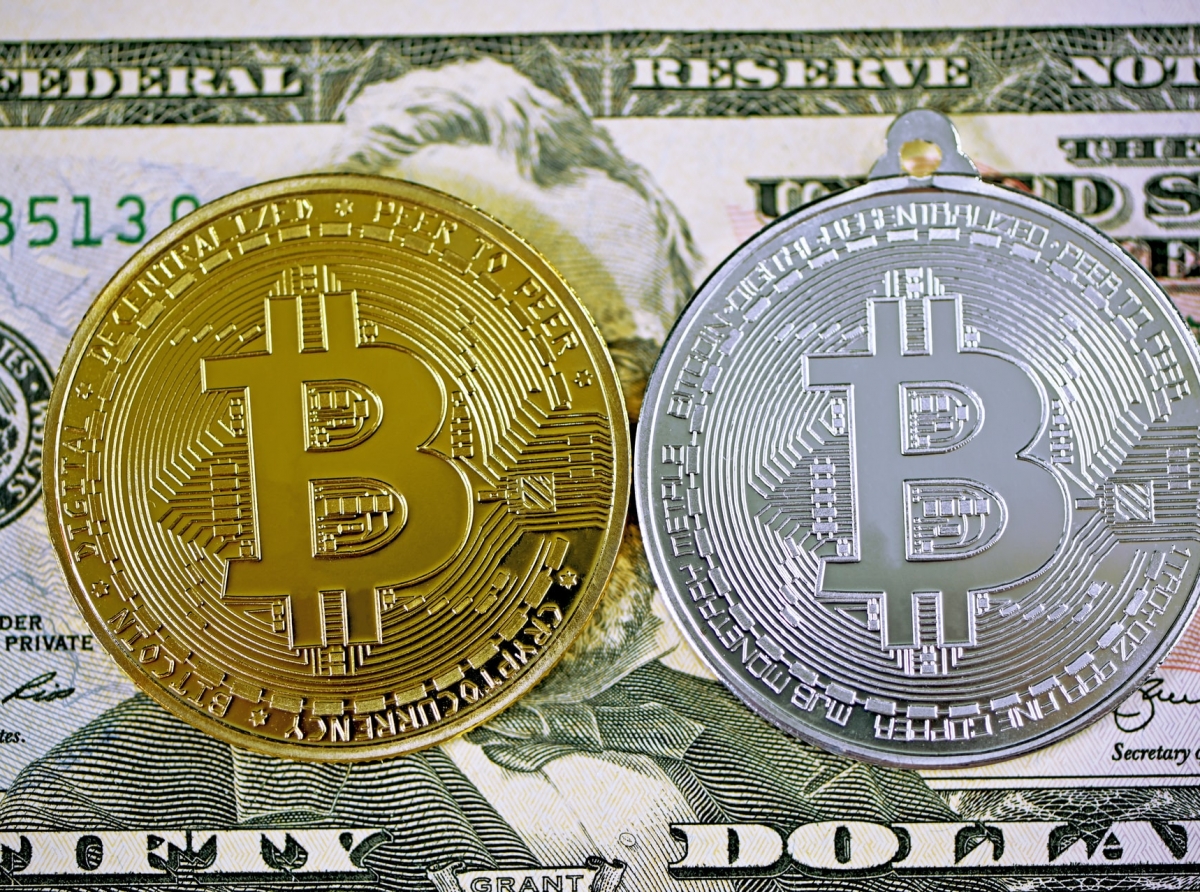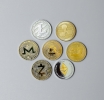How government digital currencies will change our lives

While the US is accelerating the printing press, China is already testing the digital yuan. Global finance will never be the same again. But why do we need digital money, why is it better than traditional fiat money, and what are the pitfalls?
The coronavirus epidemic has accelerated the exit of cryptocurrencies from the "marginalized / shadowy world." Today, the global economy needs more than ever a payment instrument that can be used to make payments quickly, inexpensively and without unnecessary intermediaries like Visa or Mastercard. And now China is already testing the "digital yuan", and the USA, Great Britain, France, South Korea and other countries are working on similar steps. According to a World Bank study, about 20% of 66 central banks are considering introducing government digital currencies in the next six years. New financial instruments will become widely available to ordinary citizens, but few people understand what will change from this. Let's try to figure it out.
The coronavirus epidemic has accelerated the exit of cryptocurrencies from the "marginalized / shadowy world." Today, the global economy needs more than ever a payment instrument that can be used to make payments quickly, inexpensively and without unnecessary intermediaries like Visa or Mastercard. And now China is already testing the "digital yuan", and the USA, Great Britain, France, South Korea and other countries are working on similar steps. According to a World Bank study, about 20% of 66 central banks are considering introducing government digital currencies in the next six years. New financial instruments will become widely available to ordinary citizens, but few people understand what will change from this. Let's try to figure it out.
What is happening and why is it needed
The Central Bank of China is launching DC / EP (digital currency / electronic payment) digital currency testing in the cities of Shenzhen, Suzhou, Chengdu and Xiongnan. The asset will be issued by four state-owned banks: Agricultural Bank of China, Industrial and Commercial Bank of China, Bank of China and China Construction Bank.
The Chinese authorities have chosen the easiest way to integrate digital currency - implementation through the social and budgetary spheres. As early as May, officials working in Suzhou will receive half of the transportation subsidies in DC / EP, not traditional yuan. To do this, they must install a special application on their smartphones - in fact, it is an electronic wallet that can be linked to an existing bank account. It will also be possible to pay with the new digital currency, for example, at McDonald's, Starbucks, Subway. All this reminds of how the Euro was introduced into circulation, which united 18 European currencies. This, too, was not overnight and began in 1999 with a cashless digital form.
But the revolutionary nature of the state digital currency, of course, is not that the emission of digital money is cheaper, because you will not need special paper with watermarks and other security measures. The Chinese authorities believe that “a sovereign digital currency is an effective alternative to the dollar settlement system. It dulls the impact of any sanctions and mitigates the threat of boycott both at the national level and at the level of individual companies. ”
In addition, government digital currencies can actually speed up payments, increase transaction volumes and thereby increase the level of GDP, which has fallen sharply due to the coronavirus pandemic. This is exactly how, for example, American economists reason about the digital dollar. However, the introduction of digital currencies will change the economy at all levels: from global to personal finance.
The Central Bank of China is launching DC / EP (digital currency / electronic payment) digital currency testing in the cities of Shenzhen, Suzhou, Chengdu and Xiongnan. The asset will be issued by four state-owned banks: Agricultural Bank of China, Industrial and Commercial Bank of China, Bank of China and China Construction Bank.
The Chinese authorities have chosen the easiest way to integrate digital currency - implementation through the social and budgetary spheres. As early as May, officials working in Suzhou will receive half of the transportation subsidies in DC / EP, not traditional yuan. To do this, they must install a special application on their smartphones - in fact, it is an electronic wallet that can be linked to an existing bank account. It will also be possible to pay with the new digital currency, for example, at McDonald's, Starbucks, Subway. All this reminds of how the Euro was introduced into circulation, which united 18 European currencies. This, too, was not overnight and began in 1999 with a cashless digital form.
But the revolutionary nature of the state digital currency, of course, is not that the emission of digital money is cheaper, because you will not need special paper with watermarks and other security measures. The Chinese authorities believe that “a sovereign digital currency is an effective alternative to the dollar settlement system. It dulls the impact of any sanctions and mitigates the threat of boycott both at the national level and at the level of individual companies. ”
In addition, government digital currencies can actually speed up payments, increase transaction volumes and thereby increase the level of GDP, which has fallen sharply due to the coronavirus pandemic. This is exactly how, for example, American economists reason about the digital dollar. However, the introduction of digital currencies will change the economy at all levels: from global to personal finance.

How government digital currencies will change our lives
Why payments and transfers will become cheaper
Today we see a colossal difference in how widespread and / or known to people certain payment instruments in different countries. For example, Russians use contactless payments PayPass, ApplePay and others with might and main, the Chinese have long been accustomed to paying by QR codes and actively “pay with their face” even in the subway, Americans like Amazon Go stores, where you can just pick up the goods and go out, and the money will be written off from the card automatically. At the same time, residents of Italy, Spain, Austria prefer cash, although they have no obstacles or restrictions for using other payment instruments.
Digital currencies look like a logical continuation of this evolution, another tool that will just add to the list, but this is not entirely true. Unlike other payment instruments, cryptocurrencies do not supplement the existing financial infrastructure, but create a new one - without intermediaries, transparent and reliable.
When we pay for any product or service, on average 1-5% of the money goes to payment systems as an acquiring commission. Cryptocurrencies - like fiat payments using QR codes - allow the buyer to pay directly to the seller, which means that eliminating an intermediary - for example, Visa or MasterCard - will make goods and services cheaper. There are already marketplaces where users can directly pay with different cryptocurrencies. For example, a marketplace in the Aximetria app.
Of course, payments using the state digital currency will not become free, but fees will be significantly reduced. Their size will be set by the issuer of the centralized digital currency, that is, by the state, and not by international corporations seeking to maximize profits at any cost.
Today we see a colossal difference in how widespread and / or known to people certain payment instruments in different countries. For example, Russians use contactless payments PayPass, ApplePay and others with might and main, the Chinese have long been accustomed to paying by QR codes and actively “pay with their face” even in the subway, Americans like Amazon Go stores, where you can just pick up the goods and go out, and the money will be written off from the card automatically. At the same time, residents of Italy, Spain, Austria prefer cash, although they have no obstacles or restrictions for using other payment instruments.
Digital currencies look like a logical continuation of this evolution, another tool that will just add to the list, but this is not entirely true. Unlike other payment instruments, cryptocurrencies do not supplement the existing financial infrastructure, but create a new one - without intermediaries, transparent and reliable.
When we pay for any product or service, on average 1-5% of the money goes to payment systems as an acquiring commission. Cryptocurrencies - like fiat payments using QR codes - allow the buyer to pay directly to the seller, which means that eliminating an intermediary - for example, Visa or MasterCard - will make goods and services cheaper. There are already marketplaces where users can directly pay with different cryptocurrencies. For example, a marketplace in the Aximetria app.
Of course, payments using the state digital currency will not become free, but fees will be significantly reduced. Their size will be set by the issuer of the centralized digital currency, that is, by the state, and not by international corporations seeking to maximize profits at any cost.
Who will control whom
Digital currency is not only money in the usual sense, but also a technology that is ideal for providing the state with financial resources. Simply put, the introduction of a state digital currency can increase and simplify tax collection - up to 100%. In parallel, of course, the state will receive a large array of data about its citizens and their finances, for that centralized crypto technologies are often criticized. But! The transparency that blockchain provides works in the opposite direction.
Cryptocurrency technologies allow you to control not only citizens, but also the work of the state, allowing you to track where each budget ruble / cent / yuan was spent. For example, did all the pledged $ 14 billion go to fight the coronavirus in China, or part of it “went astray” and settled on completely different accounts. With the use of digital currency, targeted social assistance will become truly targeted, and commercial banks and payment systems will not be able to receive their percentage from such payments.
Digital currencies will open up even more opportunities if they are freely convertible. In this case, they can be used for global calculations and will really weaken the dependence of national economies on the US dollar, which, apparently, the Chinese are counting on in the future. They can certainly be understood: in addition to the long-declared trade war, the United States is trying to hold China responsible for the coronavirus pandemic, and the new "financial weapon" will come in handy to protect against the economic consequences of American attacks.
Digital currency is not only money in the usual sense, but also a technology that is ideal for providing the state with financial resources. Simply put, the introduction of a state digital currency can increase and simplify tax collection - up to 100%. In parallel, of course, the state will receive a large array of data about its citizens and their finances, for that centralized crypto technologies are often criticized. But! The transparency that blockchain provides works in the opposite direction.
Cryptocurrency technologies allow you to control not only citizens, but also the work of the state, allowing you to track where each budget ruble / cent / yuan was spent. For example, did all the pledged $ 14 billion go to fight the coronavirus in China, or part of it “went astray” and settled on completely different accounts. With the use of digital currency, targeted social assistance will become truly targeted, and commercial banks and payment systems will not be able to receive their percentage from such payments.
Digital currencies will open up even more opportunities if they are freely convertible. In this case, they can be used for global calculations and will really weaken the dependence of national economies on the US dollar, which, apparently, the Chinese are counting on in the future. They can certainly be understood: in addition to the long-declared trade war, the United States is trying to hold China responsible for the coronavirus pandemic, and the new "financial weapon" will come in handy to protect against the economic consequences of American attacks.
Where is the catch hidden
Despite all the advantages, states are ambivalent about the topic of digital currencies. Especially if these currencies even theoretically claim to be global - remember how difficult it is for Mark Zuckerberg's Libra to move forward, and hopefully things will be easier after the appointment of Stuart Levy, a former senior US Treasury official, as CEO.
Since no one canceled global competition, protection of one's own and national interests, the issue of “authorship” of money and control over it is really very important. If a private company becomes the issuer of the state digital currency, it can pursue its commercial interests. There is also a risk that the company's employees may lay some kind of vulnerability, which, for example, will lead to a data leak in the future. And who knows what will happen if the company changes ownership. A striking example is the scandal with Crypto AG, which has long been one of the leaders in the encryption market. As it turned out, in the middle of the 20th century, it was bought by the American and German special services, which allowed them to read the secret correspondence of governments and intelligence services of other countries for decades. In the case of money, it would be like a nuclear explosion. That is why it is simply impossible to trust digital emission to private corporations.
Despite all the advantages, states are ambivalent about the topic of digital currencies. Especially if these currencies even theoretically claim to be global - remember how difficult it is for Mark Zuckerberg's Libra to move forward, and hopefully things will be easier after the appointment of Stuart Levy, a former senior US Treasury official, as CEO.
Since no one canceled global competition, protection of one's own and national interests, the issue of “authorship” of money and control over it is really very important. If a private company becomes the issuer of the state digital currency, it can pursue its commercial interests. There is also a risk that the company's employees may lay some kind of vulnerability, which, for example, will lead to a data leak in the future. And who knows what will happen if the company changes ownership. A striking example is the scandal with Crypto AG, which has long been one of the leaders in the encryption market. As it turned out, in the middle of the 20th century, it was bought by the American and German special services, which allowed them to read the secret correspondence of governments and intelligence services of other countries for decades. In the case of money, it would be like a nuclear explosion. That is why it is simply impossible to trust digital emission to private corporations.
But for the state to be able to launch its own digital currency, the desire to maintain a monetary monopoly is not enough. Central banks must become technology companies. This is a serious challenge, so states are in no hurry to launch digital currencies before they are convinced that they have everything they need - from hardware to a reliable team of professionals. However, given how actively different countries are now considering following the example of China, dozens of national cryptocurrencies will become available in the very near future.














Report
My comments